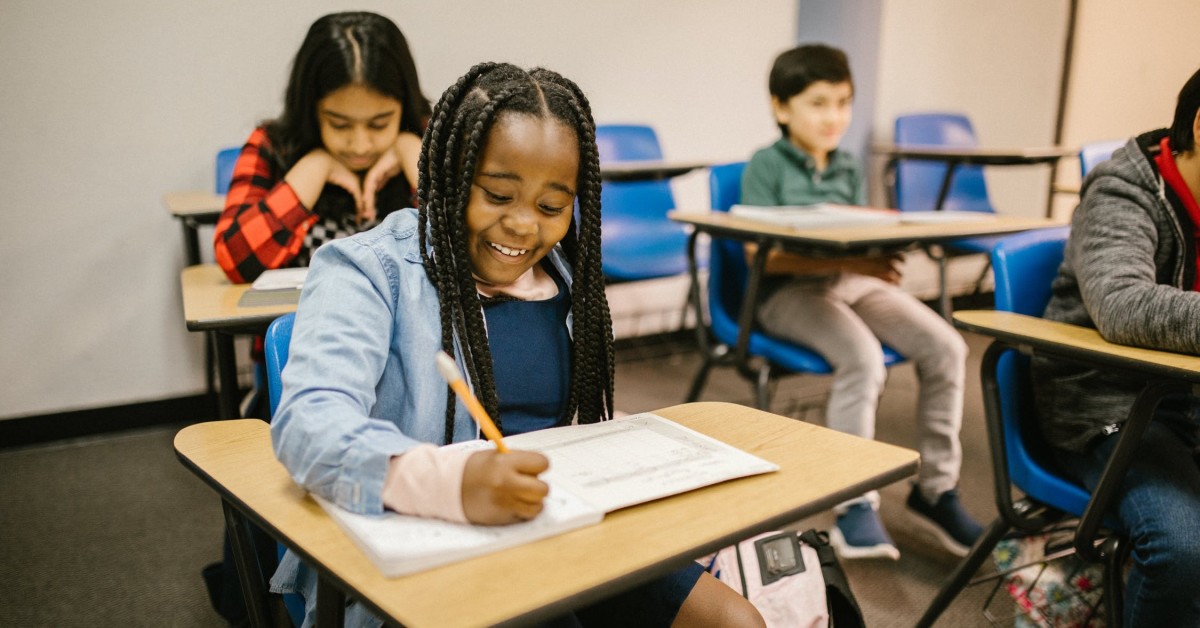
What Does Inclusive Mean in Education?
Inclusive education means that students with disabilities and children of [...]
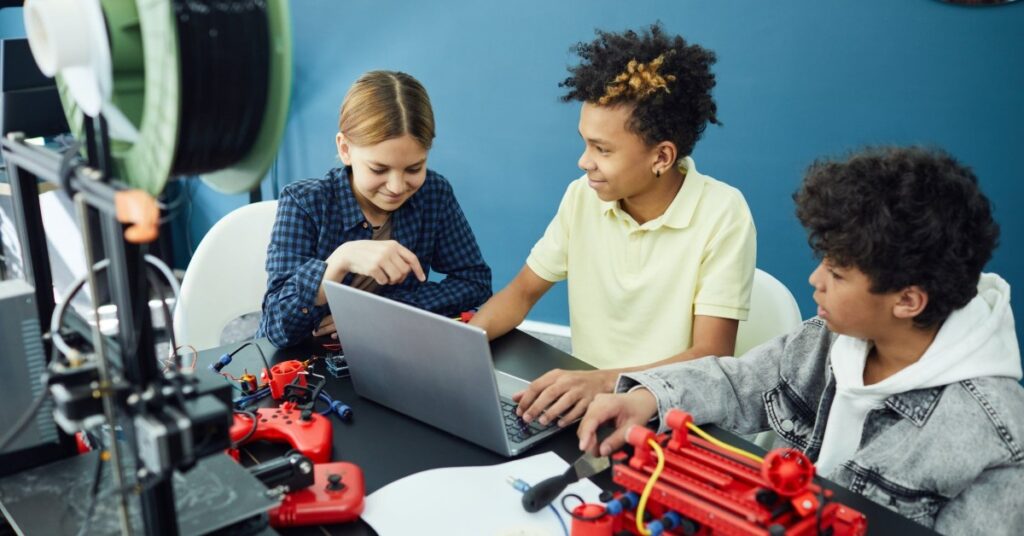
Inclusive education is the practice of coeducating students with disabilities and non-special needs learners whenever possible. UNICEF estimates that 240 million children worldwide live with disabilities. Many educators argue that inclusive education is especially important in early childhood, a crucial time in every child’s development.
Studies show that inclusive learning environments benefit everybody in the classroom, including non-disabled students who learn empathy, compassion, and other valuable life skills, according to the National Association for the Education of Young Children. Inclusive childhood education may help children with developmental disabilities advance more quickly and steadily while teaching others essential social and learning skills.
Continue reading for a more detailed answer to the question what is inclusive childhood education? and learn how you can launch a career in it. This article covers:
According to UNICEF, “Like all children, children with disabilities have ambitions and dreams for their futures. Like all children, they need quality education to develop their skills and realize their full potential.” Inclusive education, UNICEF continues, “means all children in the same classrooms, in the same schools.” Inclusive education enables students of all backgrounds and abilities to learn in an atmosphere conducive to mutual education and free from unnecessary stigma. The Individuals With Disabilities Education Act (IDEA) of 1975 ensconced inclusive education as a right by setting the goal of “equality of opportunity, full participation, independent living, and economic self-sufficiency for individuals with disabilities.”
Inclusive education requires commitment from governments and school districts, parents, teachers, and students. Differently abled students need specialized classroom materials and even specialized classrooms. Advocates must ensure that these assets are available and accessible.
Focusing on early childhood education means you’ll teach a specific age group. New York University‘s teacher residency program trains inclusive educators to lead grades one through six. The University of Kansas, in contrast, focuses on preschool through kindergarten.
Lifelong inclusive education relies on trust between students and their teachers. Teachers must prepare to facilitate multiple learning styles and help their pupils build confidence in themselves, especially during the early development phase.
Resilient Educator cites group learning opportunities as one means of making classrooms more inclusive. It’s an excellent way to get kids involved and can be done through technology, such as smart whiteboards. Teachers typically play a larger role in instruction for young students than they do for older students.
Inclusive learning involves accommodating different learning styles. Reading Rockets notes that visual learning aids like posters, calendars, and flip charts are essential to assist visual learners. Leveled books, manipulatives, and teaching assistants can facilitate group learning for students with different needs.
One essential aspect to inclusive learning, especially in early childhood programs, is communicating with parents to coordinate additional support, including after-school resources. Building a relationship with a parent—or the student’s other care providers—can further define a teacher’s role, allowing the student to enjoy even greater success.
In addition to the classroom benefits discussed, inclusive education can make economic sense. Kids who grow up with inclusive education are better prepared for life and advocate for themselves. Those who build confidence are not only prepared to succeed in school but in life, meaning better jobs and workforce contribution.
| University and Program Name | Learn More |
|
Merrimack College:
Master of Education in Teacher Education
|
A master’s isn’t necessary to lead an inclusive classroom. According to the Wisconsin Department of Children and Families, “one of the most important things that impacts how you see the practice of inclusion and, more broadly, people with disabilities, is your attitude.” You’ll likely need a master’s to create programs as a special needs teacher. That said, dedicated teachers may work with specialized constituents to plan lessons for their classrooms.
A master’s inclusive childhood education contains a mixture of pedagogic coursework and fieldwork. At NYU, students take courses on teaching different subjects to different learning styles, then work with mentor teachers to learn how to run a classroom.
A program does not necessarily need to have “inclusive childhood education” in the title to be considered an inclusive program. For instance, the University of Kansas Master’s in Early Childhood Unified “prepares professionals to meet the learning and developmental needs of all infant, toddler, preschool and kindergarten-age children, including those at-risk for and with disabilities.”
It’s more helpful to look at the program’s qualities than its title. You may get what you need out of a master’s in special education. The most common kinds of master’s degrees are the Master of Arts in Teaching (MAT), Master of Science in Teaching (MST), or Master of Education (MeD). Though all degrees can lead to a teaching career, MeDs more often focus on roles outsie the classroom, such as in lobbying, advocacy, curriculum development, or school administration. MSTs and MATs are generally subject-focused.
Master’s degrees typically take two years of full-time study to complete. If you’re a teacher who wants to continue teaching during your education, you may take longer. A few degrees take less time. NYU, for instance, has a one-year MAT that includes extensive student teaching opportunities. This teacher residency program is targeted specifically to candidates who did not major in education or teaching at the undergraduate level. Education or teaching majors can earn a one-year master’s through one of the many widely available accelerated programs.
Admissions requirements vary by program, but generally speaking you’ll need to submit letters of recommendation, a resume, undergraduate and graduate-level transcripts for all previous academic work, a personal essay, and standardized test scores. The most common standardized test for education students is the Graduate Record Examinations (GRE). Many schools are adopting test-optional admissions policies.
The focus of your program also matters. For instance, a licensure-focused program can attract aspiring teachers. Others may be built for current teachers looking for professional development.
Inclusive education curricula depend on the school. For instance, NYU breaks its courseload down into 12 modules over a year. At University of Wisconsin – Madison, students complete ten required courses plus a practicum and seminar.
These separate programs include overlapping coursework. Students learn about classroom management, educating disabled students, and interventions. You can expect to touch on these subjects in any inclusive education master’s program.
Inclusive special education is itself a specialization. However, you may target your education to specific interests through research projects or electives.
This section gives an overview of a few high-quality inclusive childhood education programs. The list includes programs with inclusive education in the degree title and special education programs that can lead to inclusive education careers.
Though not an inclusive education master’s, Harvard’s Master’s in Education in Education Policy and Analysis focuses on generating and evaluating policy with a deep understanding and context of the issue. Students can take jobs in government, think tanks, or work for the school system. Though courses may not focus specifically on inclusive education, this type of program produces leaders who research and advocate for more inclusive classrooms.
NYU emphasizes the value of learning from current teachers during this educator preparation program. Students partner with two mentors for their field experiences. Even NYU’s classrooms are arranged inclusively; special education professors teach collaboratively with non-special education faculty. Students learn everything about teaching in an inclusive setting, including establishing synergy between the students. The degree includes online components; students meet with their constituents and faculty two times a week through platforms like Zoom.
Graduates of the University of Wisconsin Special Education MS prepares to “pursue positions in schools or community-based agencies, or advocacy organizations that promote independence and inclusion for individuals with disabilities.” The degree has two tracks: Teacher Certification, and Research and Theory. Pursuing research may lead to a doctoral degree. The certification track enables you to develop skills like advocacy and lesson planning.
Students in Portland State’s Master’s in Early Childhood: Inclusive Education learn to instruct children ages 0 to 8, enabling graduates to work in elementary schools. The program has four specializations: Infant Toddler Mental Health, Constructivism, Early Childhood Special Education, and Distributed Pathway. This program is entirely online, but students can take advantage of study abroad and on-campus summer programs. This program does not lead directly to licensure, though many graduates attain it.
Students in this program complete a license-focused degree. You’ll be able to work in inclusive classrooms with general education teachers or lead a special-ed class. The coursework prepares graduates to conduct assessments and interventions, develop targeted curricula, and understand the “medical and physiological aspects of developmental disabilities.” Denver has rolling admissions, meaning students can submit applications year-round. The program offers fall, spring, and summer start dates and a hybrid option.
Questions or feedback? Email editor@noodle.com

Inclusive education means that students with disabilities and children of [...]
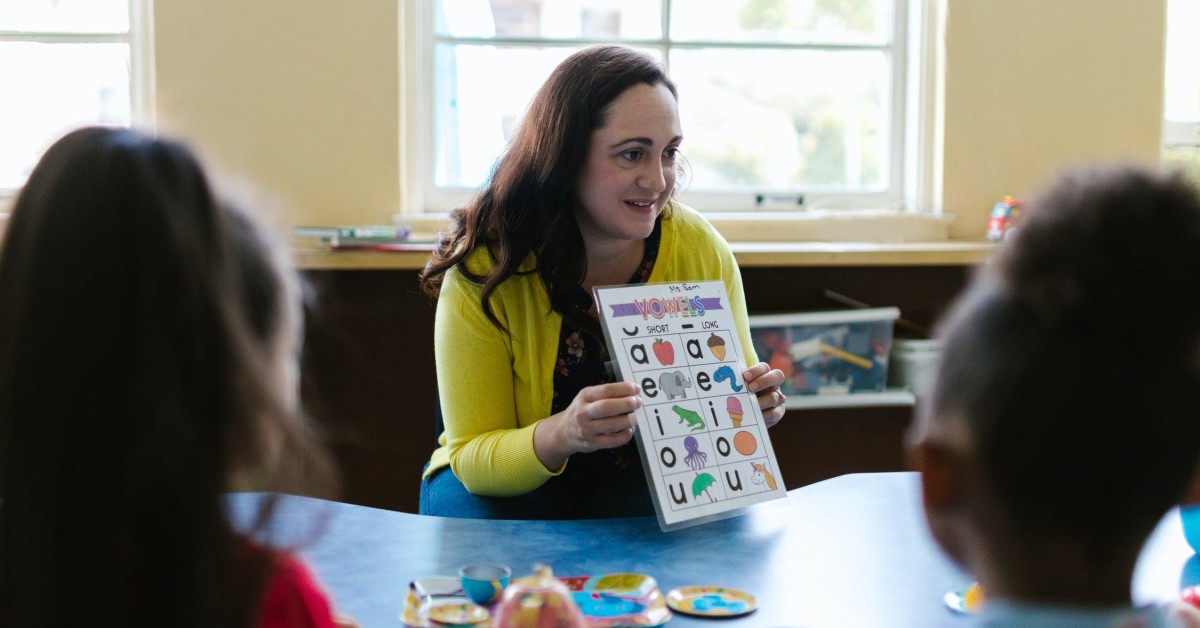
If you're considering becoming a teacher in Connecticut, you can [...]
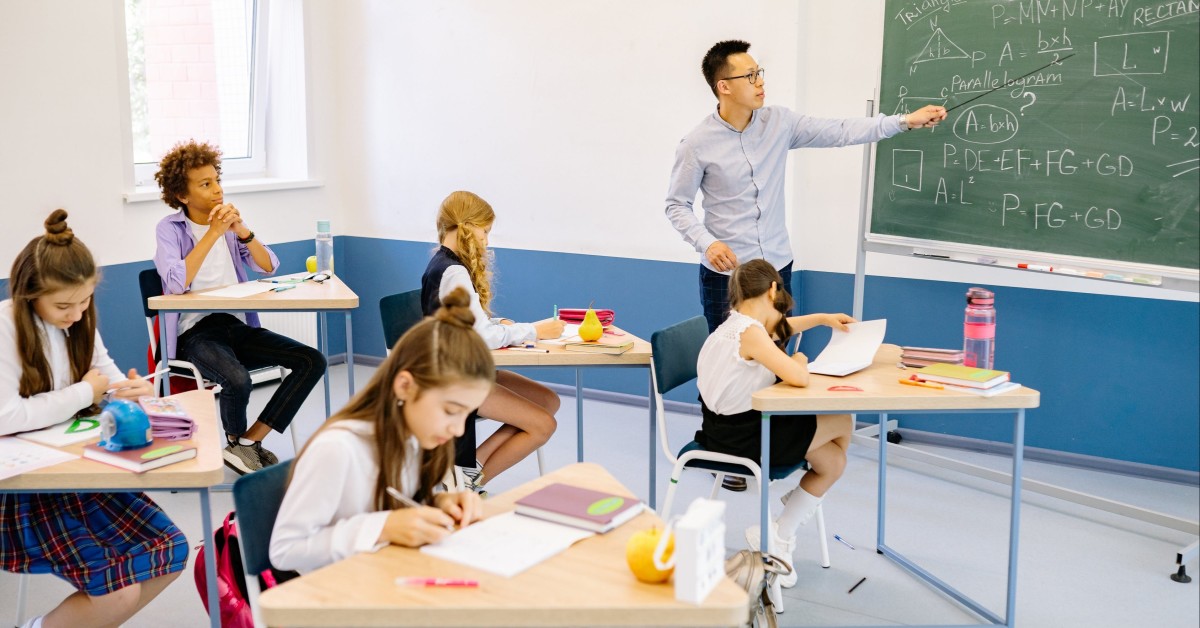
Admissions requirements for teacher residency programs are similar to those [...]
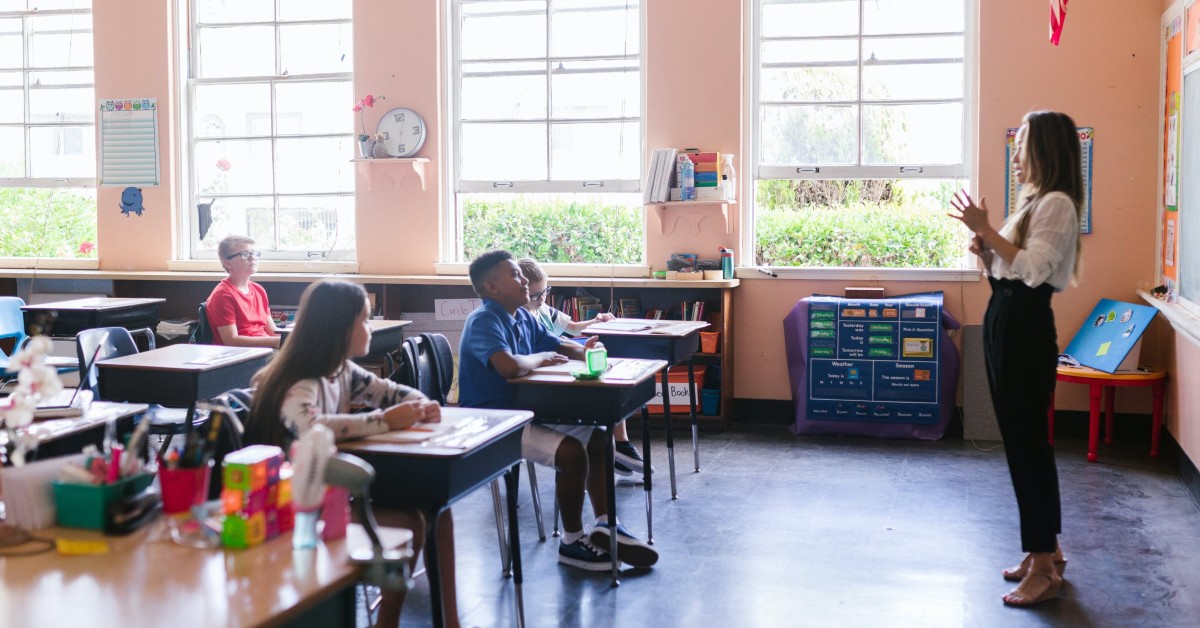
New York City-based teacher residency programs offer prospective student teachers [...]
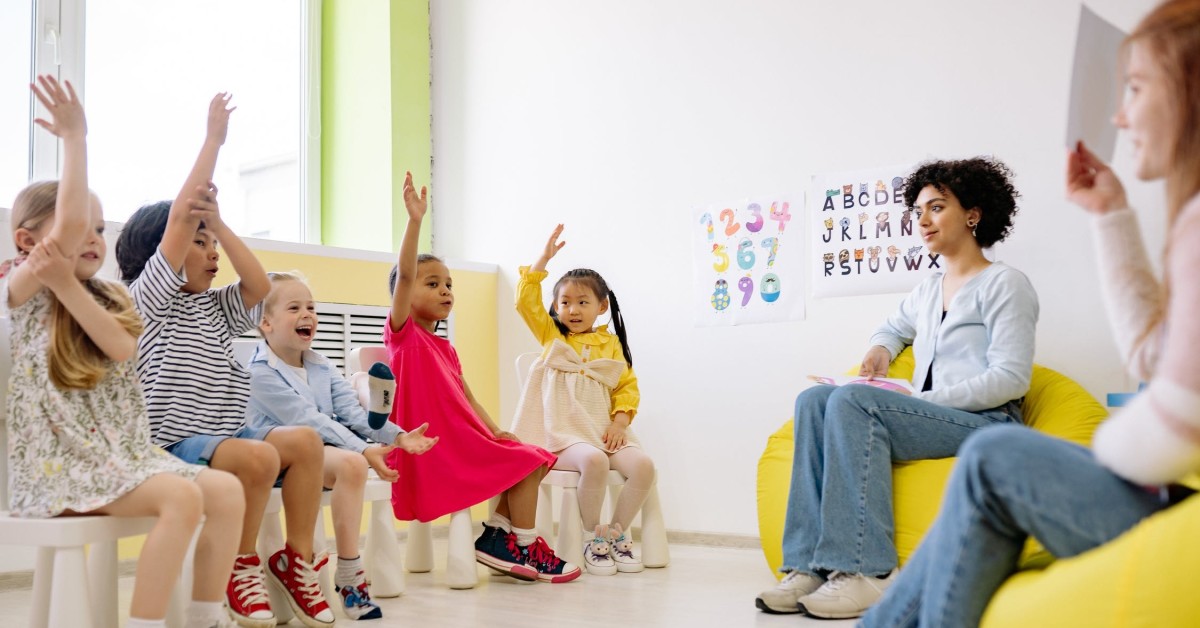
Think you'll need financial aid on your way to becoming [...]
Categorized as: Special Education, Education & Teaching